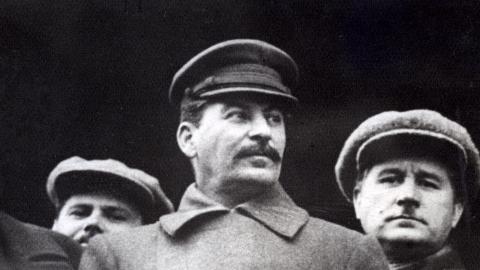Fred Iklé, who died last week at the age of 87, influenced American and world history enormously and for the good, far out of proportion to the scant public attention he attracted. In particular, he helped make it possible for the U.S. government to transcend the appalling idea that "mutual assured destruction" is a necessary and desirable aim of nuclear strategy.
Together with Herman Kahn, Albert Wohlstetter, Henry Rowen and Thomas Schelling, Iklé was one of the brilliant pioneers of defense planning in the nuclear age. As Ronald Reagan prepared for the 1980 presidential elections, he joined the candidate's foreign and defense policy inner circle. Iklé then served President Reagan as under secretary of defense for policy for seven years. Both of us worked for him at the Pentagon.
He was drawn to Reagan because they both rejected the then-common view that U.S. Cold War policy should aim at détente, or "peaceful coexistence." Instead, they thought it should aim at victory over the ideology of totalitarian communism.
Iklé knew history and human nature too well to accept the Soviet Union as a permanent feature of world affairs. He was committed to confronting the USSR and its proxies in Central America, Africa and Afghanistan, as well as in Europe and the Korean peninsula.
Iklé helped devise specific ways to challenge the Soviet Union. One way was through military means, supplying Stinger missiles to the Afghan resistance and developing strategic missile defenses. Another way was economically, opposing the Soviet gas pipeline to Europe and using export controls to limit the USSR's exploitation of Western technology. He also worked to undermine it politically, through encouraging pro-democracy Soviet dissidents and improving U.S. "public diplomacy" to attack the legitimacy of Communist rule.
Much earlier, in 1961, Iklé's article in Foreign Affairs, "After DetectionWhat?" anticipated virtually all the major problems of U.S.-Soviet arms control before there was a single treaty on the subject. Presciently he warned: Violations will be difficult to detect; American officials will find it politically inconvenient to protest violations of treaties for which they earlier claimed political credit; the "world community" will not impose meaningful penalties on cheaters; violations will not necessarily be clear-cut and, if they are, their importance will be belittled by officials who want to defend the treaty despite the cheating.
Unlike many arms-control experts, Iklé did not believe that arms treaties necessarily made the U.S. or the world safer. And in some cases, no agreement was preferable to the best agreement acceptable to the Soviets. These were the sensible but disruptively heretical views he took to the Arms Control and Disarmament Agency, a bureaucracy that, before he became its director in 1974, seemed promiscuously receptive to any treaty proposal the Soviets smiled on.
As with others who also thought about nuclear weapons rigorously and objectively, Iklé's lack of sentimentality was sometimes mistaken for callousness or moral indifference. In reality, Iklé was intensely moved by the moral implications of defense policies, especially nuclear strategy and arms control.
For example, leading arms-control advocates cherished "mutual assured destruction" as the key to strategic stabilityeven to the point of proposing that America launch a massive retaliatory strike upon receipt of radar indications that Soviet missiles were headed our way. Iklé denounced MAD as a sign of moral impairment.
"It is a tragic paradox of our age," he wrote in 1971, "that the highly humane objective of preventing nuclear war is served by a military doctrine and engines of destruction whose very purpose is to inflict genocide." Accordingly, he became a leading champion of ballistic missile defense.
Time and again, Iklé exhibited extraordinary far-sightedness. Years before 9/11, he highlighted the vulnerabilities of the American homeland to terrorist threats. After 9/11, he advocated research to enable the remote detection of nuclear weapons, an effort that bore fruit with the creation of the Domestic Nuclear Detection Office in the new Department of Homeland Security.
Strategic thinking is an ideal rarely realized. Iklé did it consistently and fruitfully for six decades. A lifetime student of history and science who passionately enjoyed music and literature, the Swiss-born Iklé reveled in the highest achievements of Western civilization and deemed the United States, his adopted country, one of the finest of those achievements. He loved this country and deserves its deepest gratitude.














